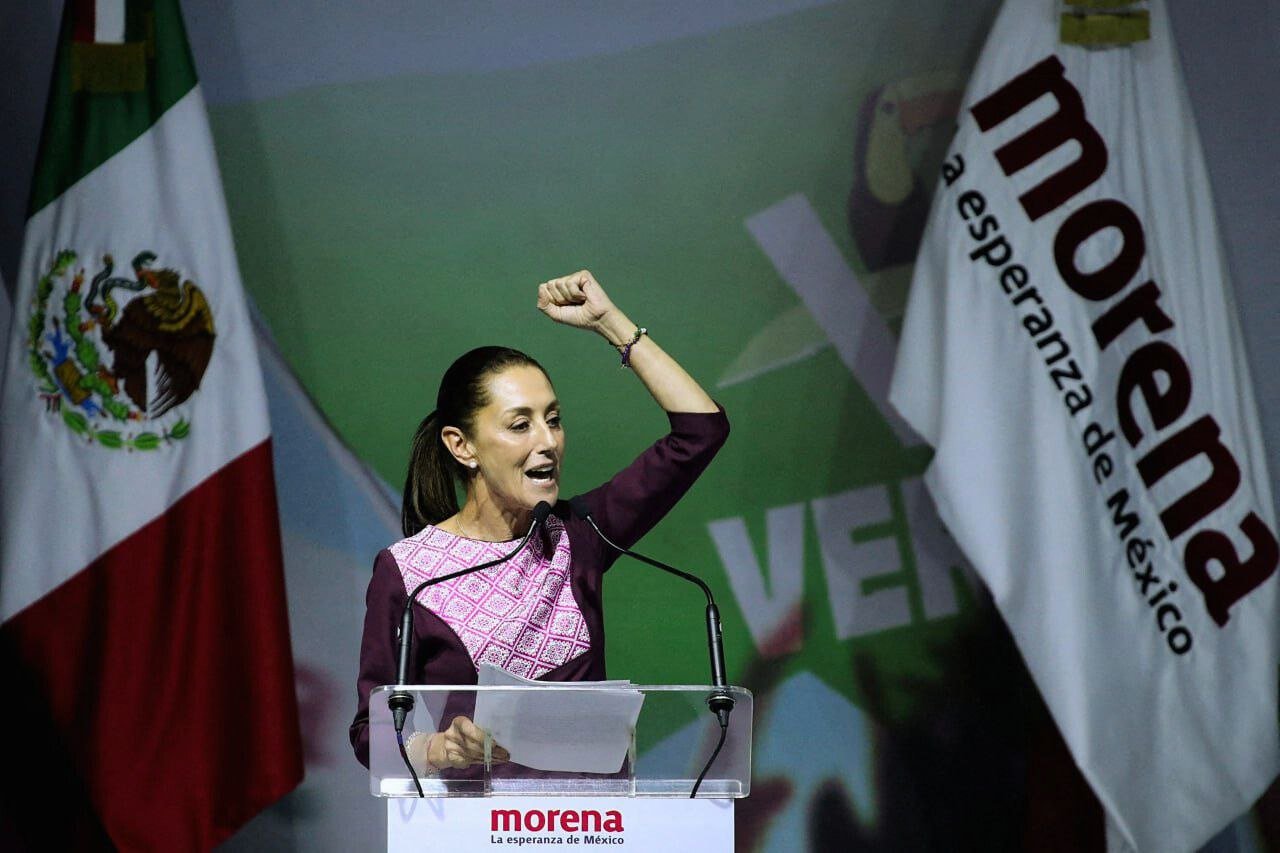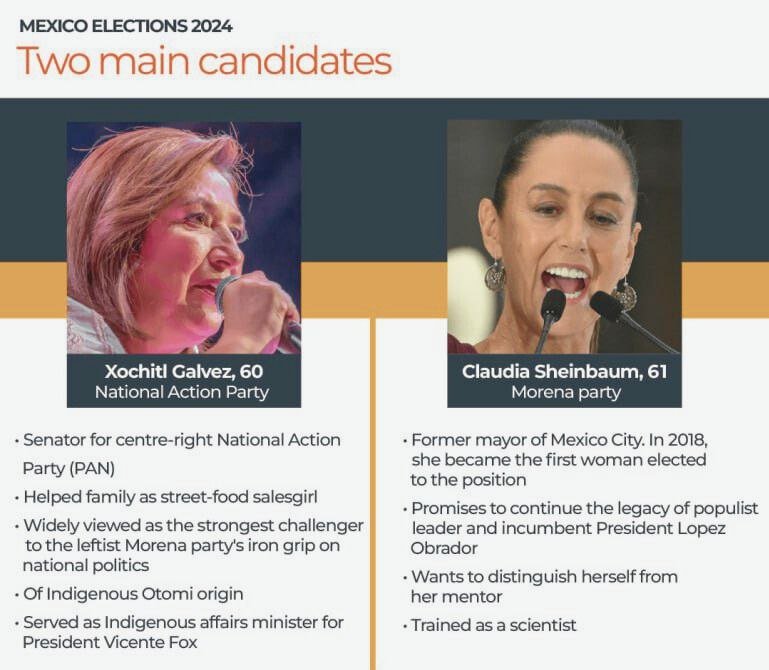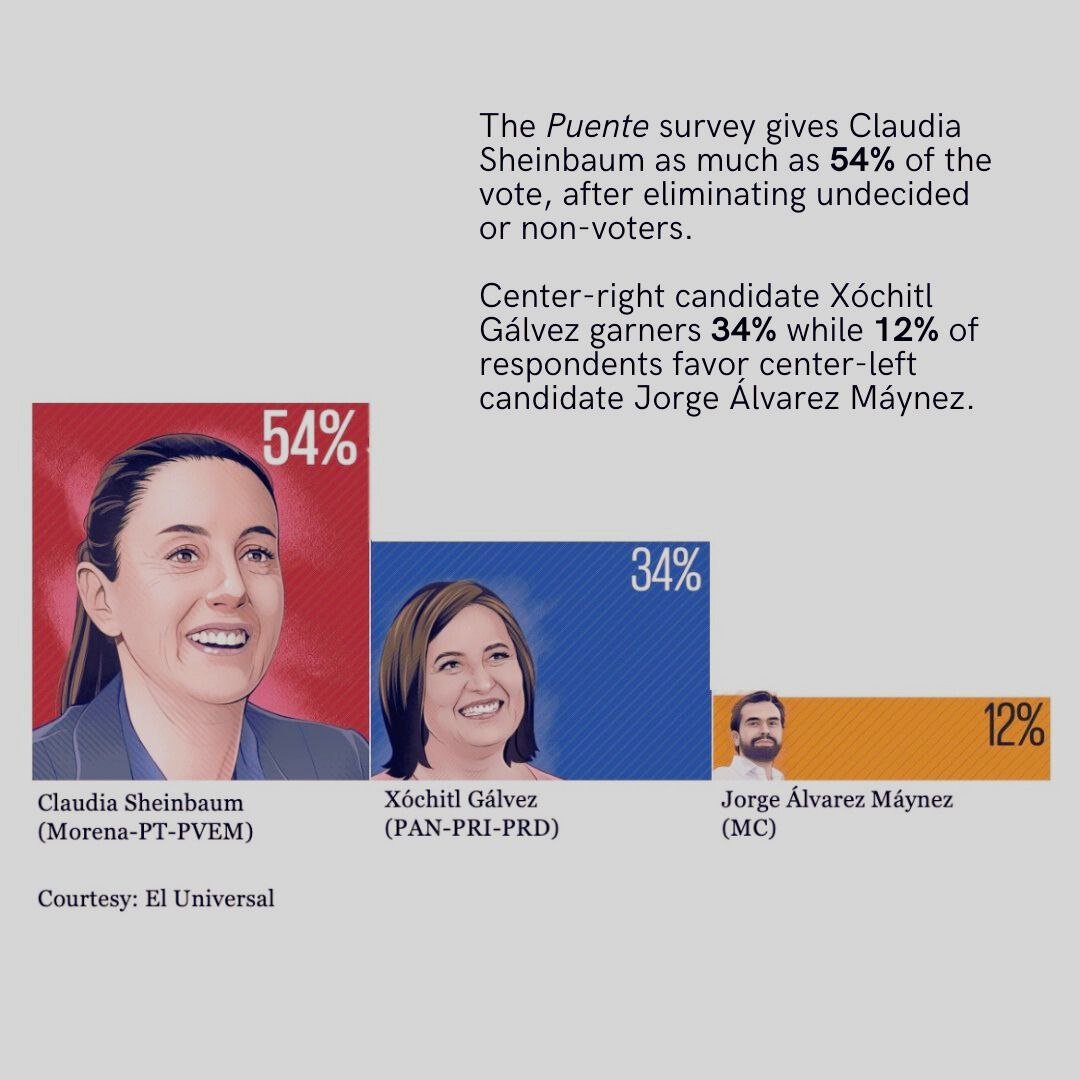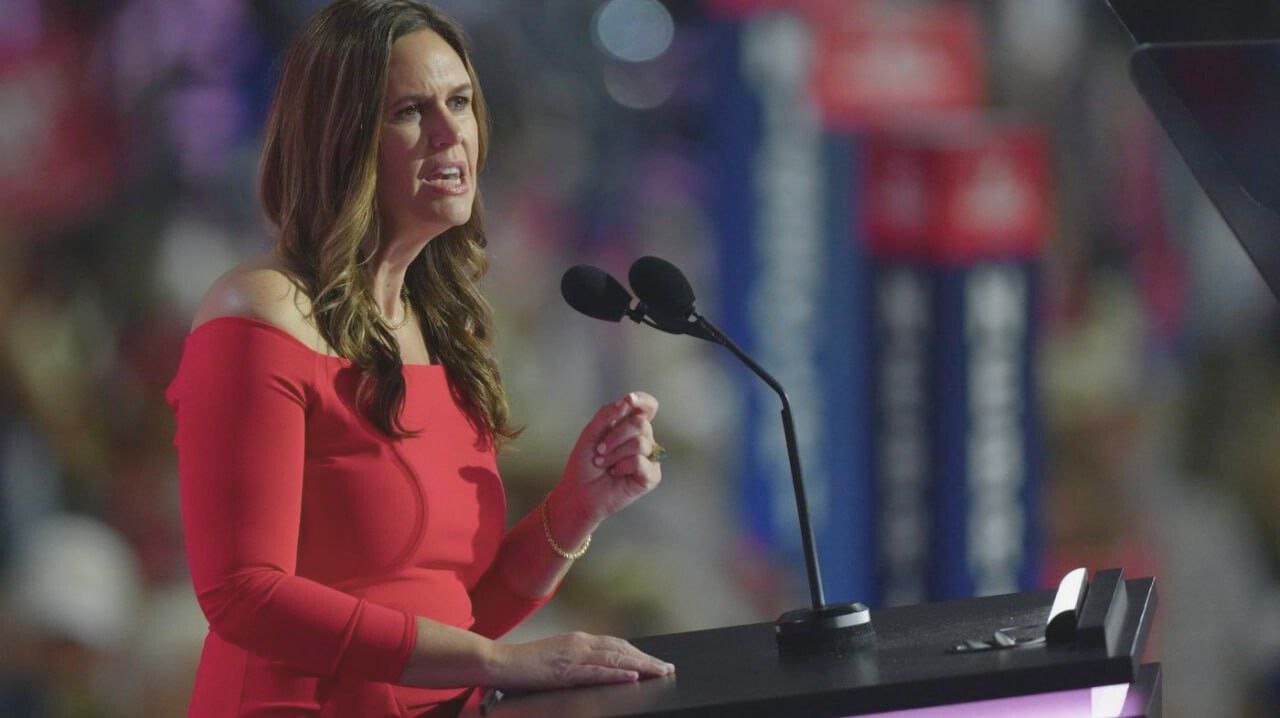
Contents
Introduction: A Historic Milestone
Claudia Sheinbaum’s election as the first female president of Mexico marks a significant milestone in the nation’s political landscape. Her victory represents not only a personal achievement but also a monumental step forward for gender equality in a country where politics has traditionally been dominated by men. This historic win is emblematic of the progress that Mexico has made in recent years, breaking down barriers and challenging long-standing norms.
Sheinbaum’s political journey has been characterized by her commitment to social justice and environmental sustainability. With a background in physics and a PhD in environmental engineering, she entered the political arena driven by a desire to address systemic issues and advocate for sustainable development. Her tenure as the head of government of Mexico City, where she implemented various progressive policies, laid the groundwork for her presidential campaign.
The key factors contributing to Sheinbaum’s election include her strong track record in public service, her ability to connect with a diverse electorate, and her steadfast dedication to tackling pressing issues such as inequality, corruption, and climate change. Her message resonated with voters who were seeking a leader capable of ushering in a new era of transparency and accountability.

Moreover, Sheinbaum’s victory is seen as a response to the growing demand for female representation in positions of power. Her ascent to the highest office in Mexico serves as an inspiration to women and girls across the nation, showcasing that gender is not a barrier to achieving the highest echelons of leadership. This historic event not only redefines the political dynamics of Mexico but also sets a precedent for future generations.
Claudia Sheinbaum’s political journey is a testament to her dedication and resilience in the face of numerous challenges. Her involvement in politics began early, influenced by her academic background in physics and environmental engineering, which fueled her commitment to sustainable development. Claudia’s initial foray into public service saw her actively participating in the National University Strike in the late 1990s, which marked the beginning of her engagement with social and political issues.
Sheinbaum’s political ascent truly gained momentum when she joined the Morena party, founded by Andrés Manuel López Obrador. Her alignment with Morena’s progressive ideals and her expertise in environmental policies quickly positioned her as a key figure within the party. In 2015, she was appointed as the Secretary of Environment for Mexico City, where she spearheaded numerous initiatives aimed at reducing pollution and promoting green energy solutions.
Her tenure as the Mayor of Mexico City, starting from 2018, was marked by significant accomplishments that underscored her capability as a leader. Under her administration, the city saw the implementation of innovative transportation projects, such as the expansion of the Metrobus system and the introduction of the Cablebús, which provided efficient and eco-friendly transportation options for residents. Additionally, her administration focused on social welfare programs, including educational reforms and housing initiatives, which aimed to improve the quality of life for the city’s most vulnerable populations.
Claudia Sheinbaum’s political philosophy is deeply rooted in social justice and environmental sustainability. Her leadership style is characterized by a pragmatic approach to governance, balancing development with ecological preservation. This resonated strongly with the electorate, who appreciated her hands-on approach and commitment to addressing pressing urban issues. Her ability to connect with constituents on a personal level and her transparent governance practices further solidified her popularity, paving the way for her historic election as Mexico’s first female president.

As Claudia Sheinbaum steps into her role as the first female President of Mexico, she faces a myriad of challenges that will test her leadership and vision. One of the foremost issues is the country’s economic situation. With inflation rates fluctuating and unemployment remaining a concern, Sheinbaum’s administration will need to formulate robust economic policies to foster stability and growth. Addressing economic disparity is crucial, as social inequality continues to be a significant concern that impacts millions of Mexicans.
Another pressing challenge is security. Mexico has long battled with organized crime and violence, which have profound implications on the country’s social fabric and international reputation. Strengthening law enforcement and judicial systems, while also promoting community-based initiatives, will be key strategies for Sheinbaum’s government to ensure safety and build public trust.
Despite these challenges, Sheinbaum’s presidency also presents unique opportunities. As a trailblazer, she is in a strong position to advance women’s rights and gender equality. Her success could inspire future generations and create a more inclusive political landscape. Moreover, her background as a scientist and environmentalist suggests she could prioritize sustainable development and green initiatives, addressing climate change and environmental degradation that have long been neglected.
Political reforms will also be on the agenda. With a mandate for change, Sheinbaum has the opportunity to tackle corruption and improve governance. This could involve enhancing transparency, accountability, and citizen engagement, thus strengthening democratic institutions and public confidence.
Political experts and public opinion reflect a mix of optimism and skepticism. While many view Sheinbaum’s presidency as a historic and progressive step, others remain cautious, aware that significant challenges lie ahead. The balance she strikes between addressing immediate issues and leveraging opportunities will define her legacy and shape Mexico’s future.

Impact on Gender Equality in Mexico
Claudia Sheinbaum’s ascension to the presidency of Mexico marks a pivotal moment in the nation’s history, particularly in the realm of gender equality. As the first female president, Sheinbaum’s leadership is expected to serve as a beacon of inspiration for women across the country, encouraging greater female participation in politics and other traditionally male-dominated sectors. Her presidency could dismantle long-standing gender barriers and foster an environment where women feel empowered to pursue leadership roles and influence policy-making processes.
The symbolic significance of Sheinbaum’s presidency cannot be understated. It represents a breaking of the glass ceiling and a challenge to the deep-seated patriarchal norms that have historically governed Mexican society. By occupying the highest office in the land, Sheinbaum sends a powerful message that gender should not be a limiting factor in achieving one’s aspirations. This could have a cascading effect, motivating young girls and women to envision themselves in roles of power and influence, thereby gradually shifting societal perceptions and expectations regarding gender roles.
In terms of policy, Sheinbaum’s leadership is anticipated to bring a more focused and nuanced approach to addressing gender disparities. Potential policy changes may include initiatives aimed at closing the gender pay gap, enhancing maternity and paternity leave provisions, and implementing stricter measures against gender-based violence. Additionally, Sheinbaum may prioritize educational reforms that promote gender equality and advocate for increased representation of women in science, technology, engineering, and mathematics (STEM) fields.
Furthermore, Sheinbaum’s presidency could catalyze the establishment of support networks and mentorship programs designed to nurture female talent and leadership. By creating platforms for women to connect, share experiences, and access resources, these initiatives could significantly contribute to reducing gender disparities and promoting women’s rights in Mexico. Ultimately, Claudia Sheinbaum’s presidency holds the promise of ushering in a new era of gender equality, setting a precedent for future generations to build upon.
OUR SITE: toinewsalert.com
Analysing the Campaign Funding for the US Presidential Election in 2024:
Analysing the Campaign Funding for the US Presidential Election in 2024







